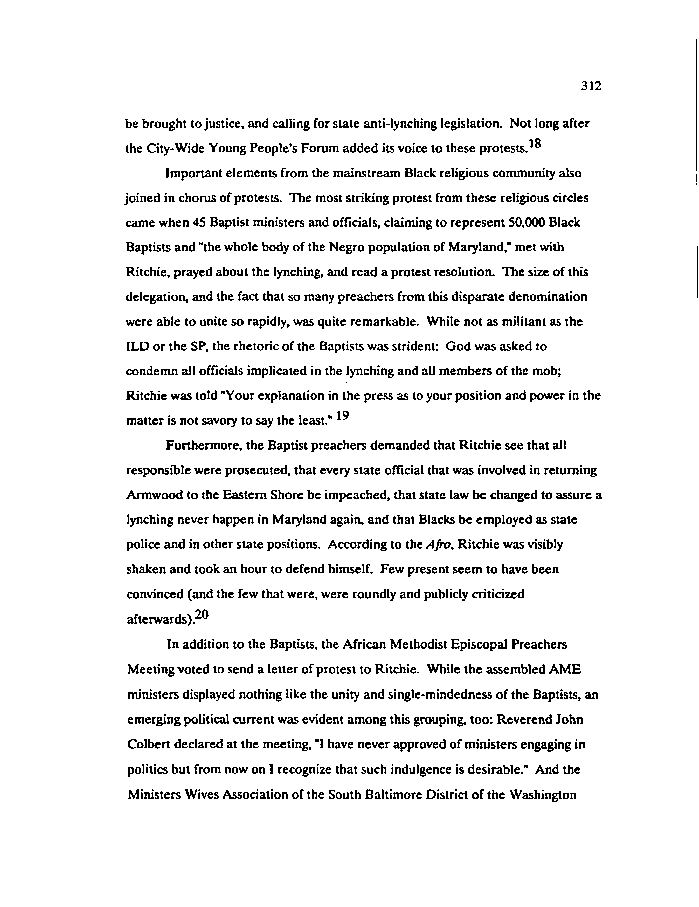|
312
be brought to justice, and calling for state anti-lynching legislation. Not long after
the City-Wide Young People's Forum added its voice to these protests.
Important elements from the mainstream Black religious community also
joined in chorus of protests. The most striking protest from these religious circles
came when 45 Baptist ministers and officials, claiming to represent 50,000 Black
Baptists and "the whole body of the Negro population of Maryland," met with
Ritchie, prayed about the lynching, and read a protest resolution. The size of this
delegation, and the fact that so many preachers from this disparate denomination
were able to unite so rapidly, was quite remarkable. While not as militant as the
ILD or the SP, the rhetoric of the Baptists was strident: God was asked to
condemn all officials implicated in the lynching and all members of the mob;
Ritchie was told "Your explanation in the press as to your position and power in the
matter is not savory to say the least." ^
Furthermore, the Baptist preachers demanded that Ritchie see that all
responsible were prosecuted, that every state official that was involved in returning
Armwood to the Eastern Shore be impeached, that state law be changed to assure a
lynching never happen in Maryland again, and that Blacks be employed as state
police and in other state positions. According to the Afro, Ritchie was visibly
shaken and took an hour to defend himself. Few present seem to have been
convinced (and the few that were, were roundly and publicly criticized
afterwards).^
In addition to the Baptists, the African Methodist Episcopal Preachers
Meeting voted to send a letter of protest to Ritchie. While the assembled AME
ministers displayed nothing like the unity and single-mindedness of the Baptists, an
emerging political current was evident among this grouping, too: Reverend John
Colbert declared at the meeting, "I have never approved of ministers engaging in
politics but from now on I recognize that such indulgence is desirable." And the
Ministers Wives Association of the South Baltimore District of the Washington
|

